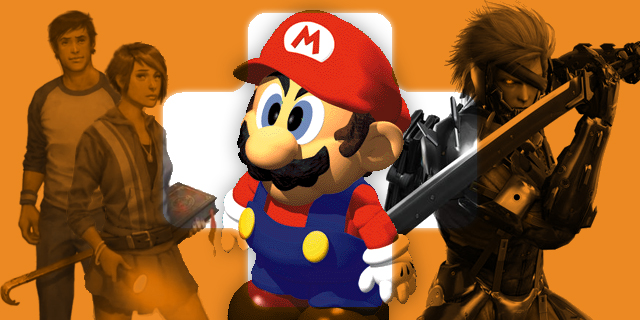
Imagine you’re playing a game in a series you particularly like. In the middle of it, you stop and think, “What if this game was actually something entirely different?” I run into those moments countless times, and yet when I actually stop to consider how that would turn, out I can’t help but become obsessed with this nonexistent game. Developers and publishers love to graft the ideas and design philosophies of certain series onto the core of different genres, either for the potential to expand the series’ audience or perhaps to simply try something different. Some of these ideas seem like obvious choices, but others might leave you scratching your head.
Regardless of the results and the potential backlash from fans, I love to see developers try new things with franchises. What’s the harm in a little experimentation?
Let’s start with the game that began this, a recent release that I particularly love: Metal Gear Rising: Revengeance. While this isn’t the first time a team has tried to take the Metal Gear franchise in a different direction (Metal Gear Acid comes to mind immediately), Rising feels like the first non-stealth focused game in the series to get it right. Metal Gear Solid 4 reintroduced Raiden to the world, and managed to win some people over with his new design and seemingly-unstoppable abilities. Why not take that character and make him playable in a completely ridiculous action game taking place in the same universe? Oh, and let’s get Platinum Games to develop it; they seem pretty good at that sort of thing.
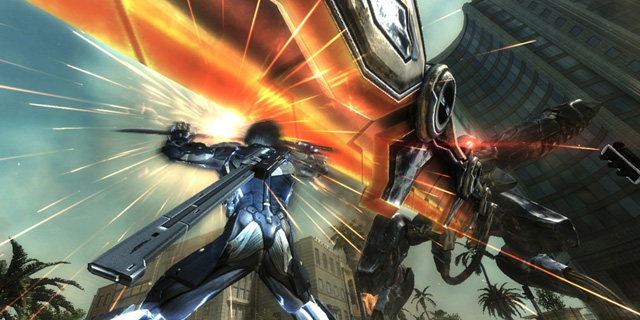
The result is a phenomenal action game that adheres to a lot of the same craziness from the main series, while maintaining a style all its own. It has moments that feel dumb even for Metal Gear, but it’s honestly one of the most enjoyable action games I’ve played in quite some time. Did it need to be a Metal Gear game to work? Not necessarily, but Platinum Games made it work without separating it too much from the series. It also establishes a potential spin-off franchise that could take the series in an interesting direction. Metal Gear will always be the stealth-action franchise that I know and love, but it’s nice to see a different take on the franchise that doesn’t step all over what made it so cherished to begin with. And even if you don’t like it, those classic Metal Gear Solid games aren’t going anywhere.
Let’s look at Final Fantasy next, a series that has seen countless spinoffs, many of which have taken off into their own thing. The first that comes to mind is Final Fantasy Tactics, a strategy RPG that stands on its own as one of the many PS1 classics to bear the name of that beloved series. While Tactics has found new life on the GBA and DS, the original game is the one fans consider a true classic.
While I’m not a fan of this sub-series, it’s hard not to admire just how impressive the original game is and how it managed to make a Final Fantasy SRPG feel right at home despite how mechanically different it is from the rest of the series. Sure, we may never see another game use the Tactics name again, but it resonated with fans the same way Final Fantasy VII did back when it was released. The reasons are different, but it wasn’t simply because the games were called Final Fantasy.
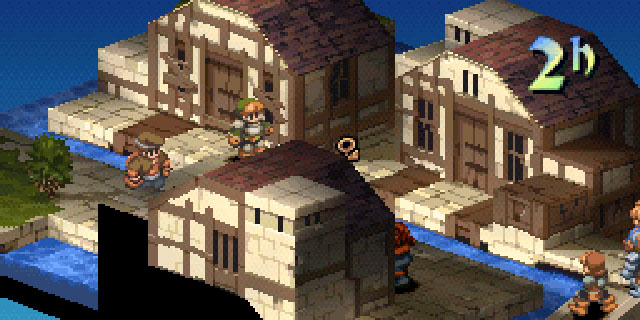
The other primary example that I can’t not talk about is Mario. We could get into Mario Kart, Mario Party and the myriad of sports games that use the name of Nintendo’s mascot, but those aren’t so much spin-offs of the franchise as much as they are their own thing. They were created because the name Mario meant something to almost anyone who has ever owned a gaming console, even if the games were so fundamentally different from what you would expect from that series at the time. They are spin-offs, sure, but they fit into an entirely different category. The key difference is this: Mario the character and Mario (more specifically Super Mario Bros.) the game franchise are ultimately different categories altogether.
What is the first real Mario spin-off then? That would be Super Mario RPG, a game that felt like it adopted the spirit of the franchise and did something compelling with it. You wouldn’t think taking a series that is primarily focused on fast reflexes and turning it into a turn-based RPG would work, but it did (and remarkably so). Thanks to the battle system incorporating timing-based attacks, it felt more active than your typical RPG during that era, allowing it to stand out in a crowded genre. These mechanics were expanded upon in both the Paper Mario and Mario & Luigi series, proving the idea of a Mario RPG was not only a successful one, but one that could benefit from integrating certain aspects of the Super Mario Bros. games without relying too heavily on them.
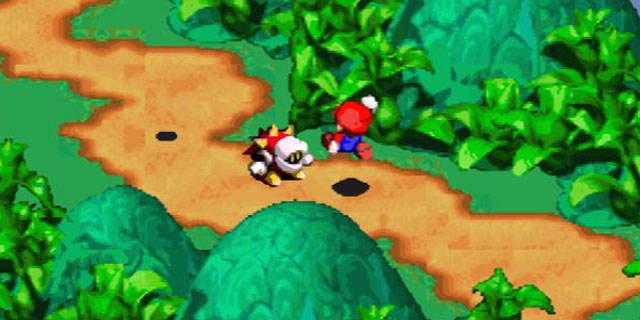
Separating a franchise from its roots isn’t an easy task, but it’s certainly possible and allows for more experimentation than what you might get from the series proper. We would have never had a Metal Gear Rising or Super Mario RPG if those in charge didn’t want to attempt something a little different with franchises that had the potential to expand upon certain ideas in distinct ways. These games don’t feel completely out of left field so much as they seemed like unlikely to ever happen, and yet they did, allowing for creative teams to try something unique without stepping all over the main series that made it possible.
This isn’t always a guarantee for success though. There are many examples I could name, but the one that comes to mind immediately is Silent Hill: Book of Memories for the Vita. This is a third-person arcade-style action game set in the Silent Hill universe, that seemed completely ridiculous from the moment it was announced. The Silent Hill franchise has gone through some hard times recently, with a string of bad sequels and some poor decisions regarding the future of the franchise, so it was easy to write off Book of Memories as yet another awful idea. I won’t say I had high hopes for it; I just wasn’t ready to write it off completely. And then I actually played it.
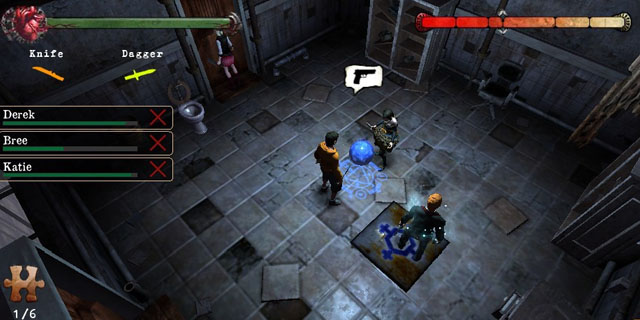
Apart from having awful aesthetics and some weird control issues, Book of Memories did nothing to make it feel like a Silent Hill game. Of course, it wasn’t meant to play anything like the main entries in the series, but there’s more to it than that. The thing that made the above examples work so well was how they embodied the ideas at the heart of those franchises and made them work within different genres. This Silent Hill game, on the other hand? It did none of that. Sure, it threw enemies from the series at you, but there wasn’t a single thing about it that felt truly reminiscent of the series. It’s unrecognizable as a Silent Hill game and it only further hurts a brand that so desperately needs help to begin with. This is how not to do cross genres.
Despite that, the good Silent Hill games remain just that: good Silent Hill games. Which brings me to my ultimate point: these cross-genre spin-offs do nothing to harm the previous games on which they are based, no matter how good or bad they may be. Sure, if Metal Gear Rising turned out to be terrible, it might have done some harm to future Metal Gear games, but those previous games are still as excellent as ever. Publishers and developers trying something new with their popular series doesn’t always need to result in something bad happening, and if it does, the series you know and love will still exist.
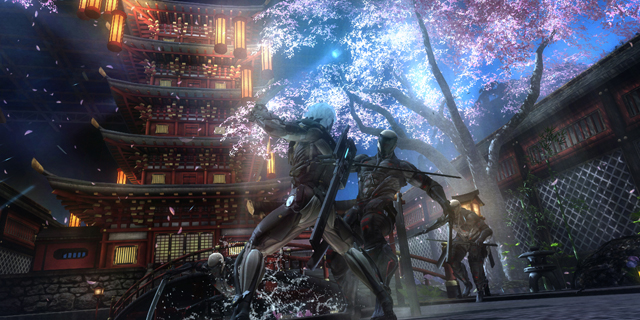
This is why spin-offs exist, especially those that cross genres: they are risk-taking ventures for those fans who want to try something new involving a series they know and love. Results may not always be perfect, but at least something new was attempted. That’s more than you can say about a handful of big name franchises these days, isn’t it?



















